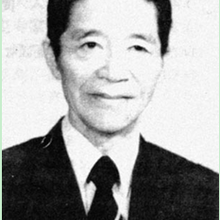
Ph.D., Plant Genetics, 1950
Xu Guanren, who was born in 1914 in Jiangsu, received a bachelor’s degree in agronomy from China’s National Central University in 1934. After graduation, Xu became a professor at National Central University until 1946 when he came to the U.S. and enrolled at the University of Minnesota. He received a doctorate in plant genetics in 1950, and then he stayed on at the University of Minnesota as a research fellow until 1956. According to University of Minnesota Archives, Xu found a way to induce a mutation for resistance to a virulent race of wheat stem rust, which was such a significant achievement that the Chinese government invited him back to China to set up an atomic energy laboratory, the first one to investigate peaceful uses of atomic energy.
After Xu returned to China, he served as dean at the Atomic Energy Utilization Research Institute at the China Agricultural Scientific Institute, deputy director of Institute of Biophysics in Chinese Academy of Sciences, and executive director of Chinese Society of Nuclear Agriculture Sciences. Xu’s research made important contributions in improving crop varieties in China.
Xu earned many honors and awards and was elected as an academician at the Chinese Academy of Sciences in 1980. In 1986 he received the Outstanding Achievement Award from the University of Minnesota. Xu is considered the founder of nuclear agriculture sciences in China.
Photo Source: www.edu80.com
徐冠仁,1914年生于江苏,于1934年获得中国国立中央大学农艺学专业学士学位。毕业后,徐冠仁留校任教至1946年来到明尼苏达大学就读。他于1950年获明大植物遗传学博士学位,接下来的六年里,他在明大任农学及植物遗传学系的研究员。据明大档案记载,在此期间,徐冠仁发现了一种通过诱发突变来抵抗小麦秆锈病毒力的方法,由于这一重要发现,中国邀请他回国成立原子能实验室,这是第一个探索原子能和平利用的实验室。
徐冠仁回国后,担任了很多重要职务,包括中国农业科学院原子能利用研究所所长,中国科学院生物学部副主任,和中国原子能农学会理事长等。徐冠仁的研究成果为提高中国作物种类做出了重要贡献。
徐冠仁一生获得很多荣誉和奖彰。1980年,他被选任中国社会科学院院士,1986年,明尼苏达大学授予徐冠仁杰出成就奖。徐冠仁被认为是中国核农学的创始人。
